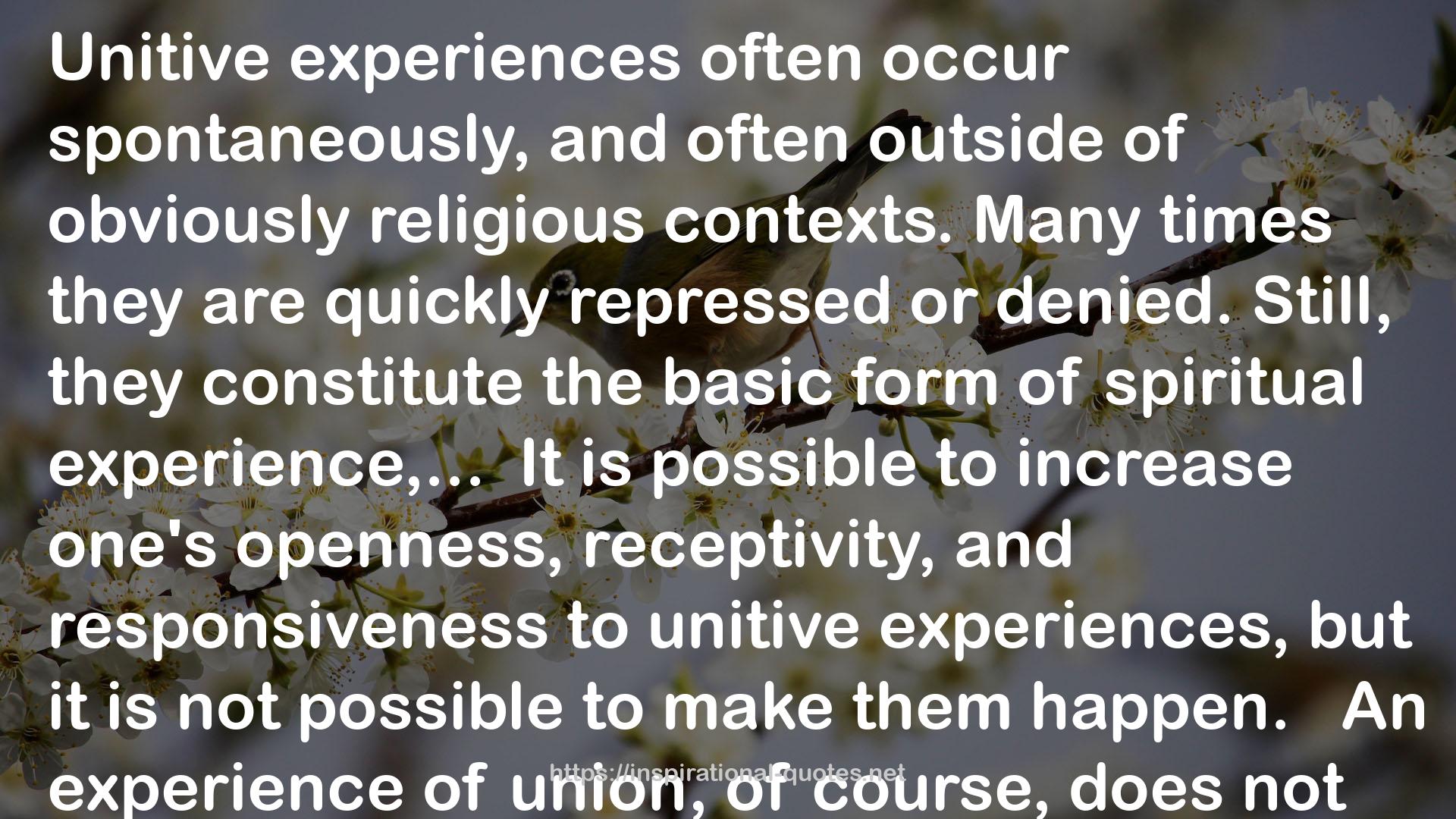" Unitive experiences often occur spontaneously, and often outside of obviously religious contexts. Many times they are quickly repressed or denied. Still, they constitute the basic form of spiritual experience,...
It is possible to increase one's openness, receptivity, and responsiveness to unitive experiences, but it is not possible to make them happen.
An experience of union, of course, does not imply that an individual is really any more at one than before or after the experience. Rather, it must be understood that the experience constitutes a realization (in the literal sense) of an aspect of life that is constantly true but that goes unrecognized most of the time. In this regard, unitive experiences can be seen as one kind of contemplative state. In classic language they are a form of "infused" contemplation, that which comes solely as a gift, as compared to "acquired" contemplation, that which comes partly from personal effort and intention....
In practice one can examine the self-losing aspect of unitive experience by asking What was your sense of yourself during the experience? In the true experience, there will be no sense of self; self will be forgotten. "
Image for Quotes

In practice one can examine the self-losing aspect of unitive experience by asking What was your sense of yourself during the experience? In the true experience, there will be no sense of self; self will be forgotten." style="width:100%;margin:20px 0;"/>